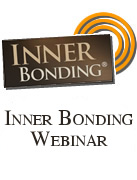Are You Relationship-Avoidant?
By Dr. Margaret PaulDecember 02, 2013
Do you believe that you want a relationship but never seem to find the 'right one?'
Most people say they want to be in a relationship, yet they consistently do things that keep them from achieving this. If you answer yes to some of the questions on the following list, you might be relationship avoidant – which means that you likely have a fear of engulfment.
-
Do you consistently choose unavailable or inappropriate people?
-
Do you find yourself being overly critical of the other person once it seems like this relationship could become more serious? Do you find yourself being very picky over small things?
-
Do you find yourself feeling interested when the other person pulls back, but then pulling back if the other person shows renewed interest?
-
Do you often pine for an old relationship, building it up to be better than your current relationship, or better than it actually was?
-
Do you come on strong at the beginning of the relationship, believing that you have found 'the one,' and when the other person reciprocates, you pull back equally strongly, suddenly losing interest?
-
Do you often find yourself not having time for the relationship?
-
Do you feel pulled on when the other person wants your time and attention, and do you go into resistance?
-
Do you often blame your partner for doing the very things that you are doing?
-
Once you break up, do you reach out to the other person just to make sure they are still there and somewhat available?
-
Do you generally feel like you have one foot out the door?
-
Do you consistently tell yourself that the problem is that you have just not found the 'right one'?
-
Were one or both of your parents very controlling?
-
Do you often give yourself up to please the other person and then end up feeling trapped in the relationship?
-
Do you believe that being in a relationship means having to give up your freedom?
-
Do you tell yourself that being in a relationship means that you are responsible for the other person's feelings and this causes you anxiety?
- Do you fear losing yourself in a relationship?
If you identify with some of these, you might want to consider that, as much as you may think you want a relationship, you might be afraid of being in a one.
Children who are raised by one or both controlling parents often have a fear of losing themselves in the relationship. Many children needed to give themselves up and allow themselves to be controlled in order to not lose their parents' approval, and as adults they may continue to fear that this is what relationships are all about.
Yet underneath all this resistance, there is likely a part of you who is very lonely and deeply wants a relationship. What's the answer?
The answer is to learn and practice Inner Bonding so that you can develop your loving adult self – the powerful spiritually connected aspect of you who can learn to love another without losing yourself. When you learn to love yourself, then you will set loving boundaries against being engulfed, controlled, smothered or consumed by a partner. As a loving adult, you would create the safety to freely love another, knowing deeply in each moment that you would rather lose the other person than lose yourself.
When you know this to be true for yourself, then you are free to fully love another person. It has to start with learning how to love yourself, since you cannot love another and share love with another unless you are loving yourself enough to create an inner sense of safety. This is what happens when you practice Inner Bonding.
 Send this article to a friend
Send this article to a friend  Print this article
Print this article  Bookmarked 5 time(s)
Bookmarked 5 time(s)
Comments
| Author | Comment | Date |
|---|---|---|
| Join the Inner Bonding Community to add your comment to articles and see the comments of others... | ||

Daily Inspiration
Every relationship in our lives offers us a gift of growth. Think about your most difficult relationships - family, friends, co-workers. Today, pick one to focus on. How is this person a mirror for you? How do you not take care of yourself around this person? What do you want from this person that you are not giving to yourself?
By Dr. Margaret Paul

 Share with Del.icio.us
Share with Del.icio.us Share with Digg
Share with Digg






